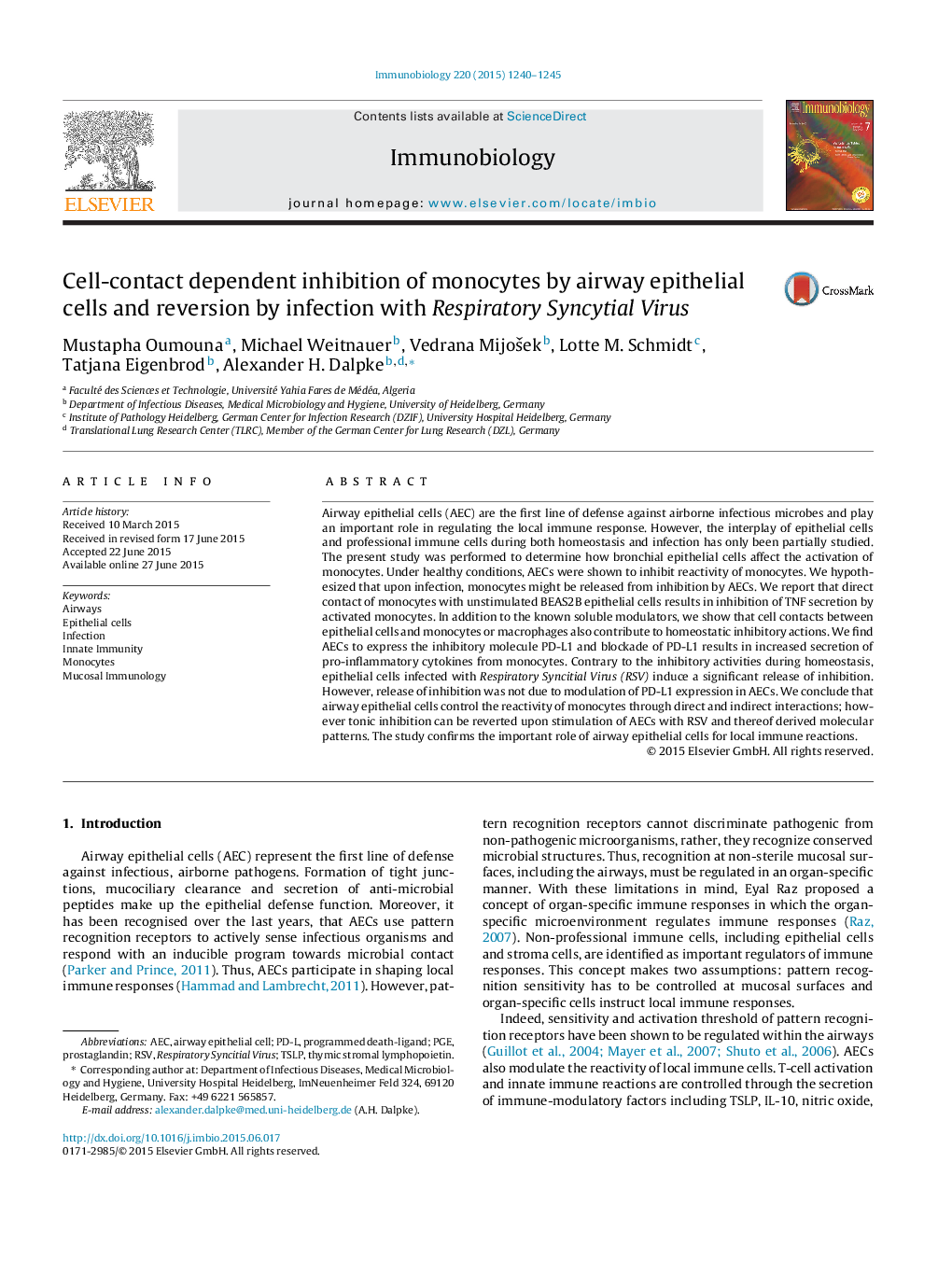| کد مقاله | کد نشریه | سال انتشار | مقاله انگلیسی | نسخه تمام متن |
|---|---|---|---|---|
| 2182803 | 1095516 | 2015 | 6 صفحه PDF | دانلود رایگان |
Airway epithelial cells (AEC) are the first line of defense against airborne infectious microbes and play an important role in regulating the local immune response. However, the interplay of epithelial cells and professional immune cells during both homeostasis and infection has only been partially studied. The present study was performed to determine how bronchial epithelial cells affect the activation of monocytes. Under healthy conditions, AECs were shown to inhibit reactivity of monocytes. We hypothesized that upon infection, monocytes might be released from inhibition by AECs. We report that direct contact of monocytes with unstimulated BEAS2B epithelial cells results in inhibition of TNF secretion by activated monocytes. In addition to the known soluble modulators, we show that cell contacts between epithelial cells and monocytes or macrophages also contribute to homeostatic inhibitory actions. We find AECs to express the inhibitory molecule PD-L1 and blockade of PD-L1 results in increased secretion of pro-inflammatory cytokines from monocytes. Contrary to the inhibitory activities during homeostasis, epithelial cells infected with Respiratory Syncitial Virus (RSV) induce a significant release of inhibition. However, release of inhibition was not due to modulation of PD-L1 expression in AECs. We conclude that airway epithelial cells control the reactivity of monocytes through direct and indirect interactions; however tonic inhibition can be reverted upon stimulation of AECs with RSV and thereof derived molecular patterns. The study confirms the important role of airway epithelial cells for local immune reactions.
Journal: Immunobiology - Volume 220, Issue 11, November 2015, Pages 1240–1245
